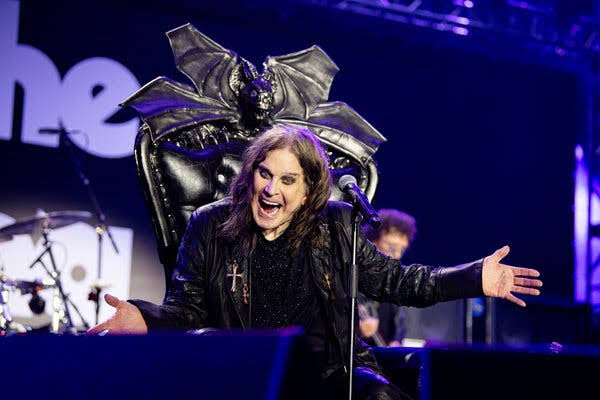You’re not alone in your opinion, and you’re certainly not a “heathen” for feeling that way about Zakk Wylde’s guitar playing. In fact, your critique touches on a broader debate within the Ozzy Osbourne fan community—one that’s been going on for decades. Zakk Wylde is an undeniably skilled guitarist with a distinctive sound, but that sound doesn’t sit well with everyone, especially those who came to love Ozzy through his earlier solo work or his time with Black Sabbath.
To understand your frustration, we need to look at the shift that happened in Ozzy’s music when Zakk Wylde entered the picture in the late ’80s. After the neoclassical finesse of Randy Rhoads and the slick, melodic chops of Jake E. Lee, Zakk’s style was a radical departure. His playing is rooted in Southern rock, sludge, and heavy blues, with a liberal and, some might argue, excessive use of pinch harmonics—those squealy, high-pitched accents that became a Wylde trademark. For many fans, this became grating. What once felt dark, haunting, and operatic in Ozzy’s solo work now felt over-the-top and, at times, cartoonishly aggressive.
The key issue lies in how Zakk’s tone and stylistic preferences often clashed with Ozzy’s established aesthetic. Ozzy’s solo career had always walked a line between the theatrical and the melodic, even when things got heavy. Randy Rhoads brought a sense of classical drama, Jake E. Lee added layered sophistication, but Zakk often brought sheer power—muscle over melody. His “bull in a china shop” energy worked for some songs and eras, but it alienated fans looking for the eerie, melancholic vibe that defined earlier albums like Diary of a Madman or Bark at the Moon.
Your mention of seeing Ozzy in 2007, with Black Label Society (BLS) supporting, is particularly revealing. BLS is Zakk Wylde unfiltered—his own band, his own rules. And to those unfamiliar or not keen on that style, it can be a shock to the system. If you found BLS off-putting, it makes total sense that having that same energy bleed into Ozzy’s solo set would feel jarring. And at 17, when your musical tastes are still forming, that experience likely left a stronger mark.
It’s also fair to say that Zakk’s presence contributed to the “Southern metal” feel that creeped into Ozzy’s later material—whether that was intentional or just a byproduct of letting Zakk have creative freedom. Albums like No More Tears or Down to Earth have moments of brilliance, but they also carry a sound that’s less British doom and more American biker bar. To fans of Sabbath or early solo Ozzy, that can feel like a betrayal of roots.
Yet, for all this, Zakk Wylde has his die-hard supporters. Many love the energy he brings, his loyalty to Ozzy, and his raw passion. For them, the pinch harmonics, the thick Gibson tone, and the shredded solos are part of what revitalized Ozzy’s career in the ’90s. But you don’t have to agree with them.
There’s also a broader point about musical chemistry. Just because two artists are great in their own right doesn’t mean they make sense together. Zakk might be a fantastic guitarist for BLS or his solo acoustic work, but he arguably wasn’t the ideal long-term fit for Ozzy’s music. Chemistry matters—just like how Tony Iommi and Ozzy created something unique in Sabbath, Rhoads and Ozzy had a once-in-a-lifetime connection.
In recent years, many fans have looked back longingly at the earlier eras, and there’s a growing appreciation for Jake E. Lee, whose contributions were underrated for years. The demand for nuance, melody, and a return to something less abrasive is very real. It’s telling that even when Ozzy made his final albums (Ordinary Man and Patient Number 9), he brought in a range of guitarists—from Andrew Watt to Jeff Beck—to achieve a more diverse, textured sound.
So, no—you’re not wrong, and you’re far from alone. Music is personal. It connects to mood, memory, and identity. Your opinion is valid, especially when it comes from firsthand experience and a genuine love for the artist’s legacy. Disliking Zakk Wylde’s guitar style in the context of Ozzy’s music doesn’t make you a lesser fan—it shows that you care about the sound, the atmosphere, and the magic that made Ozzy’s early work so compelling.
In the end, it’s okay to acknowledge that Zakk Wylde is a talented musician, even if his style doesn’t suit your taste—especially when applied to a catalog and artist you care deeply about. And if you’re ever craving that original Ozzy essence again, spinning Blizzard of Ozz or Diary of a Madman will always feel like coming home.
